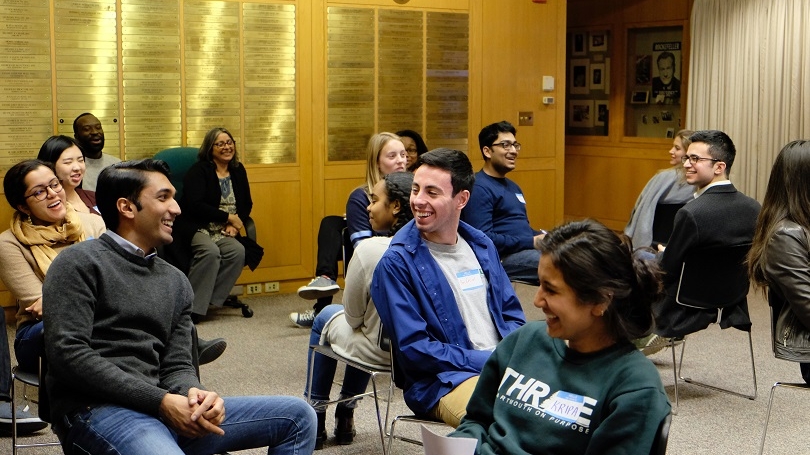
- Public Policy
- Leadership
- Funding
- News & Events
- About the Center
Back to Top Nav
Back to Top Nav
Back to Top Nav
Back to Top Nav
On Monday, January 25, 2016, Dottie Morris, Ph.D., Chief Officer of Diversity and Multiculturalism at Keene State College, spoke with students about Cultural Fluency. Program participant, Arati Gangadharan, shares her reaction to the experience here.
"I was amidst a sea of chairs. Walking in behind the other students, I complacently sat down in one of the chairs in the back, facing out one the side windows in the room. Figuring that we had all been strategically pointed in random directions for one the exercises, I twist around in chair and begin conversing with the others near me. Never once did I consider breaking norms and simply lifting my chair up to face the others. Why had I not done this? Why had I accepted the conditions of the situation? As Dottie Morris so eloquently described, we all had become sedentary in our ways. While we all were uncomfortable in our seating arrangement, with some clearly feeling out of place, we had remained still. Some of us felt out of place by turning our backs to the speaker, by not looking the speaker in the eyes, or not being able to see others’ responses to her prompts: all of these were constructs our cultural upbringing."
"Later in the session, Dottie Morris asked us to divide up a pie chart into varying sizes of pieces, representing the various qualities that we believed were the largest contributing factors in the development of our identity. We were then asked to discuss our findings with others around us; the person next to me happened to share a similar cultural background. As my neighbor and I compared our pie charts, I realized that while we may come from similar cultural identities, there are so many more factors that play into who we are, who we become, and how we transform. There is more to each of us than is easily recognizable at a first glance, and too often, we make snap judgments and wait for our suspicions to be confirmed rather than look for the more unique and intrinsic qualities that are characteristic of a person’s character."
Submitted by Arati Gangadharan '18, RGLP Participant